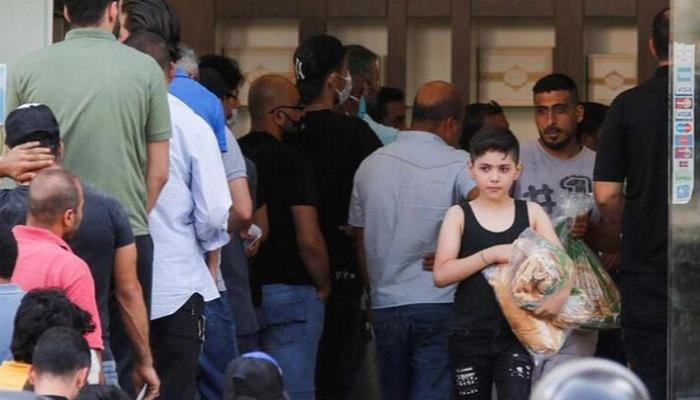
[ad_1]
The World Bank expected a big jump in poverty rates in Lebanon, emphasizing that more than half of Lebanon’s population will fall below the poverty line by 2021.
The World Bank said Tuesday that Lebanon is suffering a long and arduous recession, criticizing the authorities for “the deliberate absence of effective policy measures” and forecasting that real economic growth will slow to -19.2% in 2020.
The World Bank stated in the Lebanon Economic Monitor report that poverty is likely to continue to worsen, with more than half of the population becoming impoverished by 2021, while the debt-to-GDP ratio is expected to reach 194%, compared to 171% at the end of 2019.
The population of Lebanon, according to United Nations data released last April, is approximately 6,831,971 people.
“One year after the outbreak of the acute economic crisis in Lebanon, the deliberate absence of effective policy measures by the authorities has exposed the economy to an arduous and prolonged recession,” the bank said in a press release.
“Lebanon suffers a dangerous loss of resources, especially human capital, while the brain drain has become an increasingly desperate choice.”
The economic crisis erupted last fall, fueled by decades of government waste and corruption, when capital inflows dried up and protests engulfed the country. A year later, the currency crashed and banks were paralyzed as prices rose and jobs were lost.
The World Bank said that “the authorities disagreed among themselves regarding the assessment, diagnosis and solutions to the crisis.”
“The result was a series of uncoordinated, incomplete and insufficient political measures that exacerbated economic and social conditions,” he added.
Lebanon is grappling with the weight of its accumulated debt and facing its worst crisis since the civil war that erupted between 1975 and 1990 that undermined the currency and led to a massive rise in prices.
No progress was made in talks to form a new government following the resignation of the current government last August, following a massive explosion in the port of Beirut.
Many Lebanese have fallen into poverty and are increasingly dependent on subsidized food.
And last week, the Central Bank of Lebanon announced its study to reduce the level of mandatory foreign exchange reserves, in order to continue supporting basic products.
The subsidy cuts threaten to stoke public ire in a country devastated by protests when the financial crisis erupted in October 2019.
The International Support Group for Lebanon, which includes the five permanent members of the United Nations Security Council, issued a statement on Wednesday, calling for the formation of a government capable of implementing reforms and calling on the interim government and the parliament to act to ease economic hardship.